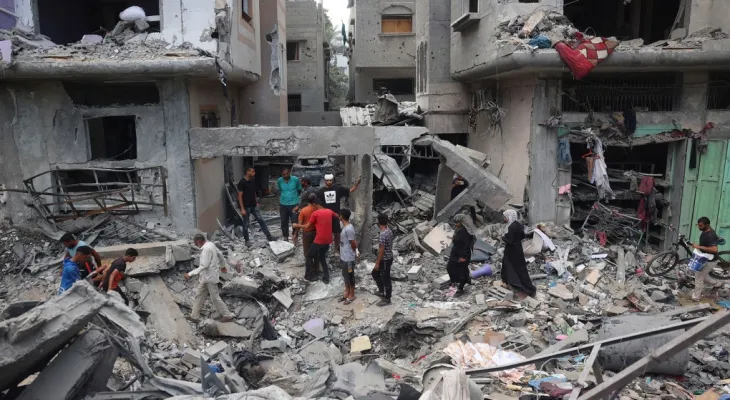Search here
Newspaper
Search here

Arab Canada News
News

Published: June 30, 2024
An Israeli official estimated today (Sunday) that the possibility of reaching a deal that would lead to the release of hostages in the Gaza Strip remains distant. According to the source, the efforts being made by the United States, Qatar, and Egypt are currently aimed at encouraging the parties to renew communications on this issue. He told Haaretz that "the broad outline presented by Biden is a framework for the agreement, but the content must be filled in," emphasizing that the distance between the two sides at present does not allow them to reach an agreement.
In Israel, there is cautious optimism about the possibility of resuming communications in the coming days, among other things, against the backdrop of the conclusion of the military operation in Rafah and the reduction of Israeli army operations in the Gaza Strip.
In addition to the heavy pressures being exerted by the United States and its mediators on Hamas to urge the movement's leadership to proceed with the deal now, other parties have expressed pessimism regarding Hamas's and Israel's readiness to complete the deal in the near timeframe.
A foreign source well-acquainted with the proposals put forward by the United States and Hamas's mediators in recent days stated that there are no substantial changes compared to the formulation presented by Biden publicly a few weeks ago.
The source said, "These are essentially wording adjustments, not changes in substance," adding that "all parties are now waiting for a response from Hamas."
Alongside this, a foreign diplomat estimated yesterday that until Israel presents its position regarding the ceasefire issue or the exit of Hamas from the Strip on this matter, the parties will find it difficult to advance this step. According to him, "this is still an exploration phase. We should not get bogged down in small details. It is not about one item or another. Everything will rise and fall according to an acceptable ceasefire formulation."
Overall, sources involved in the talks have estimated that Netanyahu's statement on Channel 14, in which he clarified that he is only willing to sign a partial agreement with Hamas and then resume fighting, will have less impact on the ability to advance negotiations with Hamas.
A source familiar with the details noted, "The problem now is the general lack of trust between the two sides." Another source said last week that "Sinwar is not interested in what Netanyahu says or thinks. If the United States, Qatar, and Egypt provide him with a clear guarantee that Israel will agree to a ceasefire, that may be sufficient for him to allow this step."
However, according to the source, the parties involved in the talks are pessimistic and have the impression that Sinwar "is not sufficiently interested in the process and prefers the possibility of opening another front between Israel and Hezbollah over an agreement that leads to a ceasefire."
Another Israeli source told Haaretz that Netanyahu's decision to retract his statement in an interview with Channel 14 last week has led to a significant improvement in the ability to advance negotiations.
In a speech delivered in the Knesset the day after the interview, Netanyahu clarified that he was also committed to the latest Israeli proposal to reach an agreement with Hamas and welcomed it. The source said, "Netanyahu's statement in the interview with Channel 14 was a serious blow to the negotiations for reaching an agreement and a loss of trust in the sincerity of the Israeli side's intentions." "The fact that Netanyahu said the next day - for the first time publicly - that Israel supports the step and is committed to it in the ongoing negotiations."
Comments